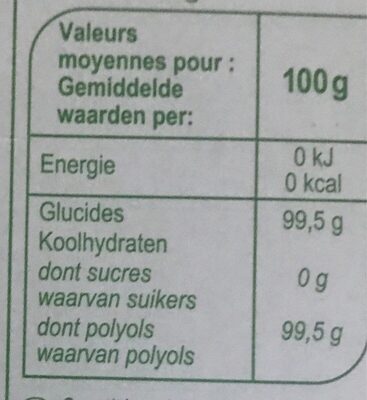Stylesse - carrefour - 130g
Important note: this product is no longer sold. The data is kept for reference only. This product does not appear in regular searches and is not taken into account for statistics.
This product page is not complete. You can help to complete it by editing it and adding more data from the photos we have, or by taking more photos using the app for Android or iPhone/iPad. Thank you!
×
Some of the data for this product has been provided directly by the manufacturer Carrefour.
Barcode: 3560071014544 (EAN / EAN-13)
Quantity: 130g
Packaging: Cardboard
Brands: Carrefour
Categories: Plant-based foods and beverages, Plant-based foods, Sweeteners, Food additives, Stevia and their products, Sugar substitutes, Natural sugar substitutes, Steviol glycosides
Labels, certifications, awards:
Green Dot, Made in Belgium
Stores: Carrefour
Countries where sold: France
Matching with your preferences
Environment
Packaging
Transportation
Report a problem
Data sources
Product added on by kiliweb
Last edit of product page on by org-carrefour.
Product page also edited by corrigo, openfoodfacts-contributors, packbot, quechoisir, teolemon, wolfgang8741, yuka.E45vDYWrOZIMI_DK_qgM0TSeT9q8IKcEG2VWow, yuka.ZUo4NFNvNVl2L1FwdWZJaG94WGU2L3RYd01TSERXR0hET1E2SUE9PQ.









